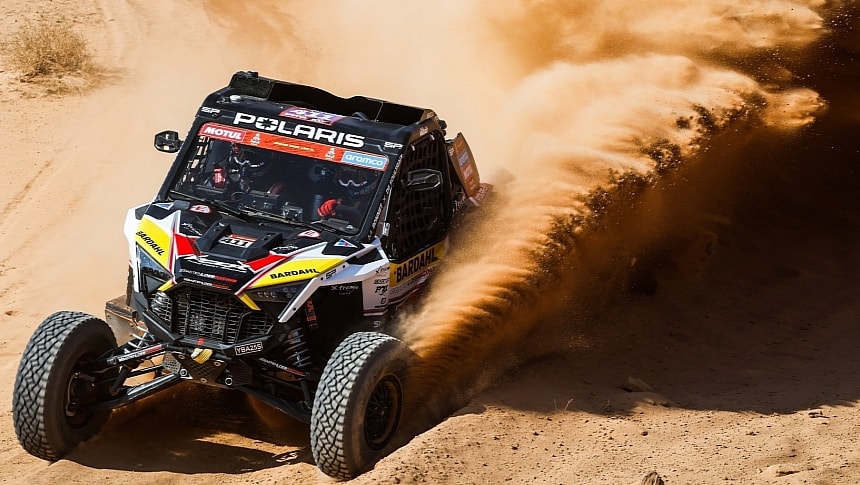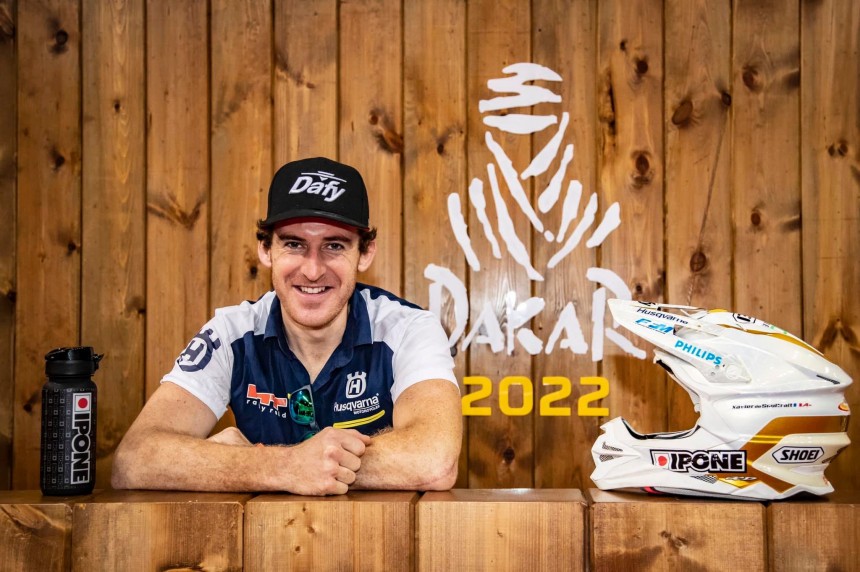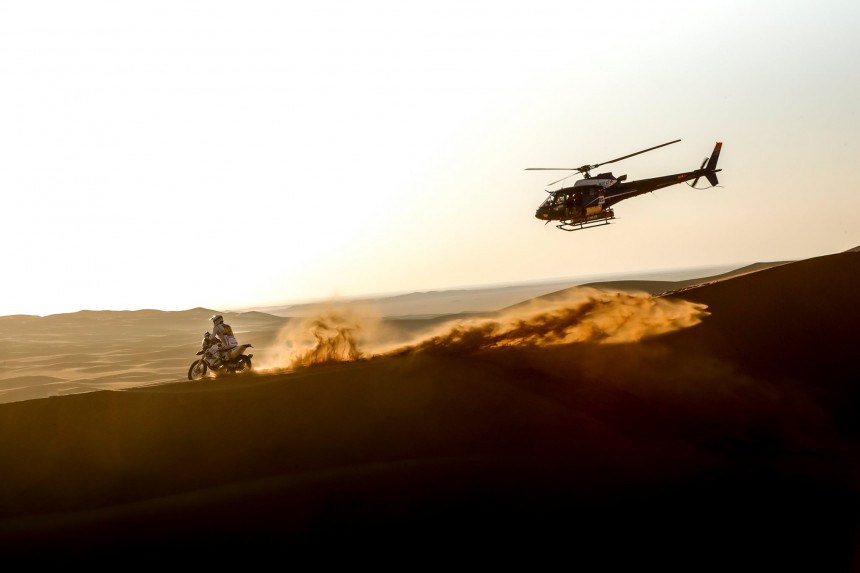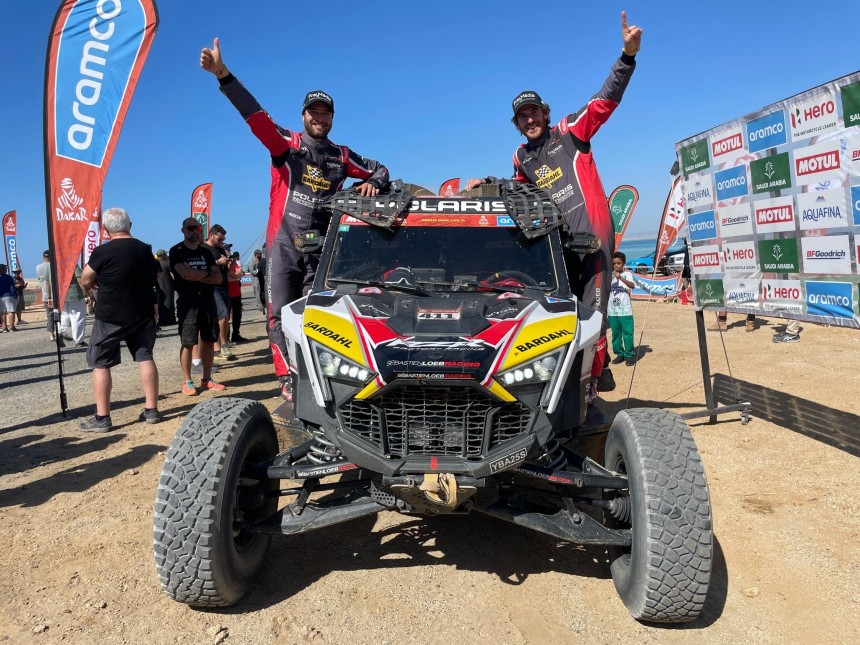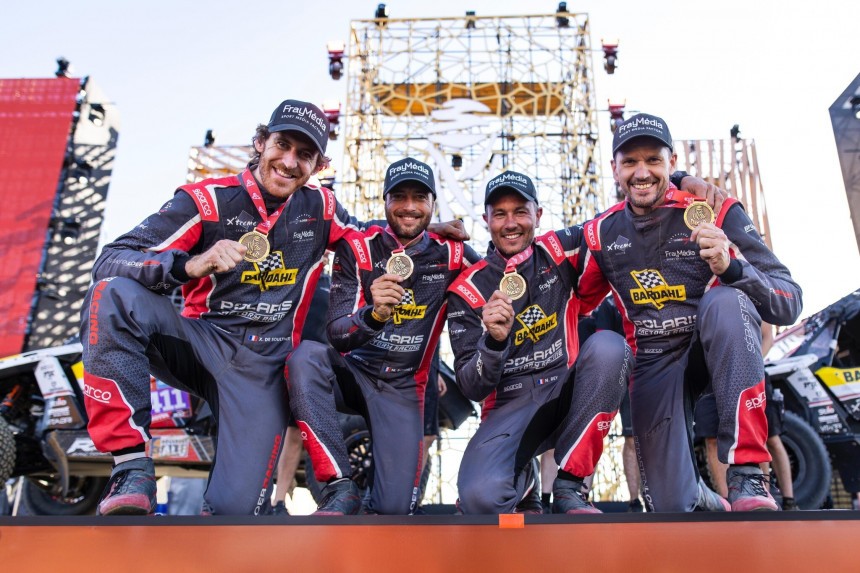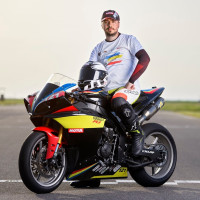One of the things I enjoy doing in life is going on long drives. Last year, I drove for almost 19 hours straight on a nearly 1,000-mile (1,610 km) road trip. But my existing record dates back to circa 2015, when I went (alongside two other drivers) for 2,300 miles (3,700 km) straight.
I'm not going to lie: the latter was exhausting, and I didn't want to get back in a car for a week after I arrived home. I didn't even feel the first one as I went straight to dinner after being awake for over 20 hours. The thing is, you always have to abide by the law when driving on public roads. That means I've rarely gone faster than 90 mph (145 kph). Pushing your car faster will have the same effect on your body, as you need to be more alert as your speed increases.
With Assetto Corsa Competizione's newest Nurburgring update, I might try it soon. But there's one form of racing that's even more daunting. Traveling at insane speeds through the Green Hell, where you can learn the track by heart and count on similar grip levels lap after lap, is not for the faint-hearted. But taking on the Dakar Rally, you must be tough as nails to survive.
I've been watching the iconic event from afar for several years now and even played the official game. But I haven't had the chance to witness it up close, and I'm hoping I can change that shortly. Until then, I'm happy to have interviewed one of the 2024 event winners, Xavier de Soultrait. This story comes after I've recently looked at the Gen 2 Polaris RZR Pro R Factory, and it only increases my appetite for experiencing one firsthand.
2024 marked the 46th edition of the Dark Rally, the fifth in Saudi Arabia. Competitors had to travel just over 4,900 miles (7,891 km) to finish, racing through one of the harshest landscapes on Planet Earth. Of the 345 vehicles on the entry list, 232 crossed the finish line in Yanbu. That should give you a sense of the grueling conditions one must survive and conquer. Driving for Sebastien Loeb Racing, Xavier de Soultrait won the SSV T4 class inside his Polaris RZR Pro R.
I asked him about his early days of riding, to which he replied: "I am one of five children who grew up in the countryside, and our family had limited income. I began riding motorcycles in the countryside with my brothers. We would work on smaller cars and completely rebuild them. Then we would sell them to buy motorbikes. I started riding as an amateur just with my brothers in the field—that's where the passion was born."
Being passionate about things will help you perform better, and it wasn't long until the young French boy wanted to test his abilities against other riders. "My first race will forever be in my memory. I was 14, and it was a very small regional event, but I had already learned a lot about racing. I remember feeling much pressure and worried about making a mistake." As expected, deciding to compete in the Dakar Rally didn't happen overnight.
Some dreams take decades to come to fruition, which was the case for Xavier. "At home, my brothers and I would finish our homework as fast as possible, to watch the Paris Dakar Rally. That was the only time we were only allowed to watch TV. Our heroes were Hubert Auriol, Richard Sainct, Stephane Peterhansel, and Kurt Casselli." He was 25 years old when he entered his first Dakar Rally, which took place in South America. One hundred seventy-four motorcycles started the event, and less than 80 finished it.
The Frenchman won the third stage and scored enough points by the end of the event to claim P7 in the bike category. It was an all-KTM podium that year, with Toby Price winning the event (his second Dakar victory). I asked Xavier about his strategy for the race, and his answer was short yet revealing: "Great navigation. I've worked all year to improve my speed in motocross, and this time, I was ready to finish first. I was completely dedicated to the goal; navigation and speed were key."
In 2021, Xavier suffered a crash during Stage 8 of the rally, and he had to be transported to the hospital via helicopter after sustaining a back injury. If you've ever met any dedicated motorcycle riders, you'll know that these incidents happen frequently in the racing world. And it wasn't enough to pin Xavier down just yet. So, I was curious to learn how he found the strength to return to Saudi Arabia in 2022 and how difficult it was for him to navigate through the dunes after what he had been through.
"I don't know if I have found the strength entirely. I was very close to not making it in 2021. Before my crash, I was leading the Dakar overall, so I wanted to try to finish the job and win. My sponsors and team helped me find the courage to do it again. Although mentally, I was not there – my wife was pregnant with our second child, and I lost a good friend in a rally crash, so it was too hard for me to go again."
Of course, driving in an SSV was the main challenge, as he had already learned many lessons from his previous Dakar outings. "My two-wheel riding experience taught me more about the race, the desert, and the dunes. Be humble - one day, you're at the top, and the next day, you can be in deep trouble. Be brave and believe in yourself; with the navigation, sometimes you are (and you feel) completely alone. You can still have a chance even if you lose a lot of time."
In 2024, Xavier and his teammate won three out of 12 stages across Saudi Arabia. I can imagine winning the event after 11 years was an amazing feeling, something you can't easily describe using words alone. "We felt like rookies in 2023; it was our first experience on four wheels and the first drive in our Polaris Challenger. Martin, my codriver, is very clever. We learned everything as quickly as we could during the first few days."
"Then, by the end of 2023, we were better and better. The challenge is huge in SSV; we need to manage the car, save the tires, and avoid punctures, although all of these new aspects made this new life very exciting. For 2024, we all made a huge effort to take first place and beat all our competitors. Having the RZR at the top of the rankings is a source of great pride for the entire Polaris community, and I feel so accomplished."
"We started this new era off extremely well." Winning the new 48-hour Chrono Stage was an impressive feat in itself. I wanted to dive deeper into a regular day for a driver competing in the Dakar Rally: "Well, we sleep in our little tent, wake up at 6 AM, and make sure to have a big breakfast (since the next time we would eat is dinner) then leave at 9 AM. Next, we traveled 155 miles (250 km) by road, then the 280 miles (450 km) special."
"Lastly, we'd hit the road again to return to the bivouac around 8 PM, have dinner and try to shower if we can, set up our tent for the night, sleep, and repeat. Eating during the day is difficult; we only eat what we bring. And we don't stop for bathroom breaks, so we have to wear diapers." With everything I've learned talking to Xavier, I'm even more impressed with how much courage and resolve a human needs to compete in a rally-raid event of this scale. I guess some people truly live more in 20 years than others do in 80.
It took Xavier 11 years to win the Dakar Rally
Why do you think F1 or MotoGP drivers undergo such intense training? Racing takes both brain and muscle if you're going to win. And the longer you have to race, the more challenging it all becomes. I'm still in awe of teams participating in 24-hour events, and I'm not sure I could even do it in the simulator.With Assetto Corsa Competizione's newest Nurburgring update, I might try it soon. But there's one form of racing that's even more daunting. Traveling at insane speeds through the Green Hell, where you can learn the track by heart and count on similar grip levels lap after lap, is not for the faint-hearted. But taking on the Dakar Rally, you must be tough as nails to survive.
I've been watching the iconic event from afar for several years now and even played the official game. But I haven't had the chance to witness it up close, and I'm hoping I can change that shortly. Until then, I'm happy to have interviewed one of the 2024 event winners, Xavier de Soultrait. This story comes after I've recently looked at the Gen 2 Polaris RZR Pro R Factory, and it only increases my appetite for experiencing one firsthand.
I started riding with my brothers in the field
He finished in 56 hours, 37 minutes, and 43 seconds, despite an 11-minute and 10-second penalty that dragged him down. Before discussing his 2024 adventure, I wanted to learn more about his past, including his previous attempts at winning the Dakar Rally. He challenged the event on two wheels for nine years, winning two stages and finishing P7 in 2019. Xavier's story inspires any aspiring motorcycle rider/racer, myself included, and I'll follow his adventures throughout 2024 and 2025.I asked him about his early days of riding, to which he replied: "I am one of five children who grew up in the countryside, and our family had limited income. I began riding motorcycles in the countryside with my brothers. We would work on smaller cars and completely rebuild them. Then we would sell them to buy motorbikes. I started riding as an amateur just with my brothers in the field—that's where the passion was born."
Being passionate about things will help you perform better, and it wasn't long until the young French boy wanted to test his abilities against other riders. "My first race will forever be in my memory. I was 14, and it was a very small regional event, but I had already learned a lot about racing. I remember feeling much pressure and worried about making a mistake." As expected, deciding to compete in the Dakar Rally didn't happen overnight.
I was very close to not making it
Marc Coma emerged victorious (his 4th Dakar win), while Xavier finished in a respectable P34. "It was intense and new because I've never done a rally. I remember my main challenge was navigating using the roadbook. Learning to stay quiet and slow was also hard. As an enduro rider, I want to go all out, but in Dakar, it's really important to know the desert and the race; then you can push it to the limit." Xavier finished P13 and 2015, but his best result was yet to come.The Frenchman won the third stage and scored enough points by the end of the event to claim P7 in the bike category. It was an all-KTM podium that year, with Toby Price winning the event (his second Dakar victory). I asked Xavier about his strategy for the race, and his answer was short yet revealing: "Great navigation. I've worked all year to improve my speed in motocross, and this time, I was ready to finish first. I was completely dedicated to the goal; navigation and speed were key."
In 2021, Xavier suffered a crash during Stage 8 of the rally, and he had to be transported to the hospital via helicopter after sustaining a back injury. If you've ever met any dedicated motorcycle riders, you'll know that these incidents happen frequently in the racing world. And it wasn't enough to pin Xavier down just yet. So, I was curious to learn how he found the strength to return to Saudi Arabia in 2022 and how difficult it was for him to navigate through the dunes after what he had been through.
We have to wear diapers
"I pushed through and did it, but I finished in 15th. I felt greatly relieved and truly happy to retire because of my decision, not injury or economic reasons. I'm proud of myself for that." In 2023, Xavier switched to racing on four wheels, taking on the SSV class with Polaris and Sebastien Loeb Racing. It marked the beginning of a new adventure, and finishing in P19 was an impressive feat for his rookie year in this category.Of course, driving in an SSV was the main challenge, as he had already learned many lessons from his previous Dakar outings. "My two-wheel riding experience taught me more about the race, the desert, and the dunes. Be humble - one day, you're at the top, and the next day, you can be in deep trouble. Be brave and believe in yourself; with the navigation, sometimes you are (and you feel) completely alone. You can still have a chance even if you lose a lot of time."
In 2024, Xavier and his teammate won three out of 12 stages across Saudi Arabia. I can imagine winning the event after 11 years was an amazing feeling, something you can't easily describe using words alone. "We felt like rookies in 2023; it was our first experience on four wheels and the first drive in our Polaris Challenger. Martin, my codriver, is very clever. We learned everything as quickly as we could during the first few days."
"We started this new era off extremely well." Winning the new 48-hour Chrono Stage was an impressive feat in itself. I wanted to dive deeper into a regular day for a driver competing in the Dakar Rally: "Well, we sleep in our little tent, wake up at 6 AM, and make sure to have a big breakfast (since the next time we would eat is dinner) then leave at 9 AM. Next, we traveled 155 miles (250 km) by road, then the 280 miles (450 km) special."
"Lastly, we'd hit the road again to return to the bivouac around 8 PM, have dinner and try to shower if we can, set up our tent for the night, sleep, and repeat. Eating during the day is difficult; we only eat what we bring. And we don't stop for bathroom breaks, so we have to wear diapers." With everything I've learned talking to Xavier, I'm even more impressed with how much courage and resolve a human needs to compete in a rally-raid event of this scale. I guess some people truly live more in 20 years than others do in 80.
